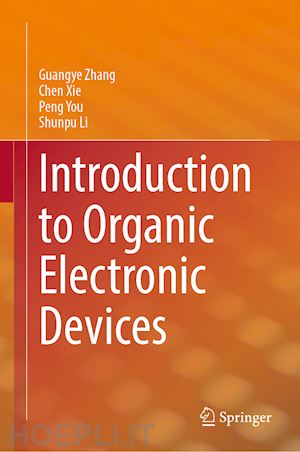Dr. Guangye Zhang graduated from the University of Science and Technology of China (USTC) with a bachelor’s degree in materials physics in 2009 and received his Ph.D. degree in chemistry in 2015 from University of California, Los Angeles (UCLA), for his study in the field of organic photovoltaics under the direction of Professor Benjamin Schwartz. He worked as a postdoctoral fellow and then a research assistant professor in Professor He (Henry) Yan’s group at Hong Kong University of Science and Technology (HKUST). In 2018, he co-founded eFlexPV Limited with Professor Yan, aiming to commercialize organic photovoltaics. In 2020, he joined Shenzhen Technology University (SZTU) as an assistant professor in College of New Materials and New Energies. He has been working on organic photovoltaics since 2008 with a focus on device engineering, device and materials physics and thin-film morphology. Besides photovoltaics, hi^3000 times and an h-index of 36.
Dr. ChenXie obtained his bachelor and master degrees from Tianjin University and Nanchang University, respectively. In 2020, he received his Ph.D. degree in Material Science from University of Erlangen-Nuremberg, Germany. Since Sep. 2020, he has become a research scientist in College of New Materials and New Energies, Shenzhen Technology University, China. During his Ph.D., he focused on researches of organic semiconductor nanoparticles and their applications on organic and perovskite solar cells. His recent research interest includes processing technology and morphology engineering in organic solar cells, light emitting diodes, thin-film transistors, and other organic electronics; the application of organic semiconductor nanoparticles in organic electronics and water splitting.
Dr. Peng You received his B.S. and M.S. degrees in Physics from Qingdao University, Qingdao, China, in 2010 and 2013, respectively, and the Ph.D. degree in Applied Physics from The Hong Kong Polytechnic University (PolyU) in 2018. Dr. You then worked as a postdoctoral fellow in PolyU for about two years. Since Oct. 2020, Dr. You has been working as a senior research scientist in College of New Materials and New Energies, Shenzhen Technology University. Dr. You focuses on the research of 2D materials and perovskite solar cells. His recent research interests include: semi-transparent perovskite solar cells, laser annealing of organic-inorganic hybrid perovskite materials, applications of novel 2D materials in perovskite solar cells, etc. Since 2013, Dr. You has published 30 SCI papers in many international journals and have been cited for more than 2200 times, and his h-index is 19 (google scholar).
Prof. Shunpu Li received his B.S. and M.S. degrees in Physics from Lanzhou University, Lanzhou, China, in 1987 and 1990, respectively, and the Ph.D. degree in Physics of Condensed Mater from The Institute of Physics, Chinese Academy of Sciences in 1993. Subsequently, he worked as postdoc researcher in Cavendish Laboratory and Nanoscience Center in University Cambridge and researcher/senior researcher in Epson Cambridge Research Laboratory and Cambridge Display Technology (CDT). In 2012, he returned back to Cambridge University through Marie-Curie Senior Fellowship. Since Nov. 2018, Dr. Li has been in College of New Materials and New Energies, Shenzhen Technology University as a professor. Dr. Li focuses on the research of organic electronics and magnetic materials and devices. His recent research interests include: organic thin-film transistor, organic photovoltaic, organic biosensors and micro/nanofabrication technology development, etc. Dr. He is named on 29 patent filings and has published 3 book chapters and over 60 papers in peer reviewed journals, such as Nature, Physical Review Letters, Advanced Materials, Nature Communication.











